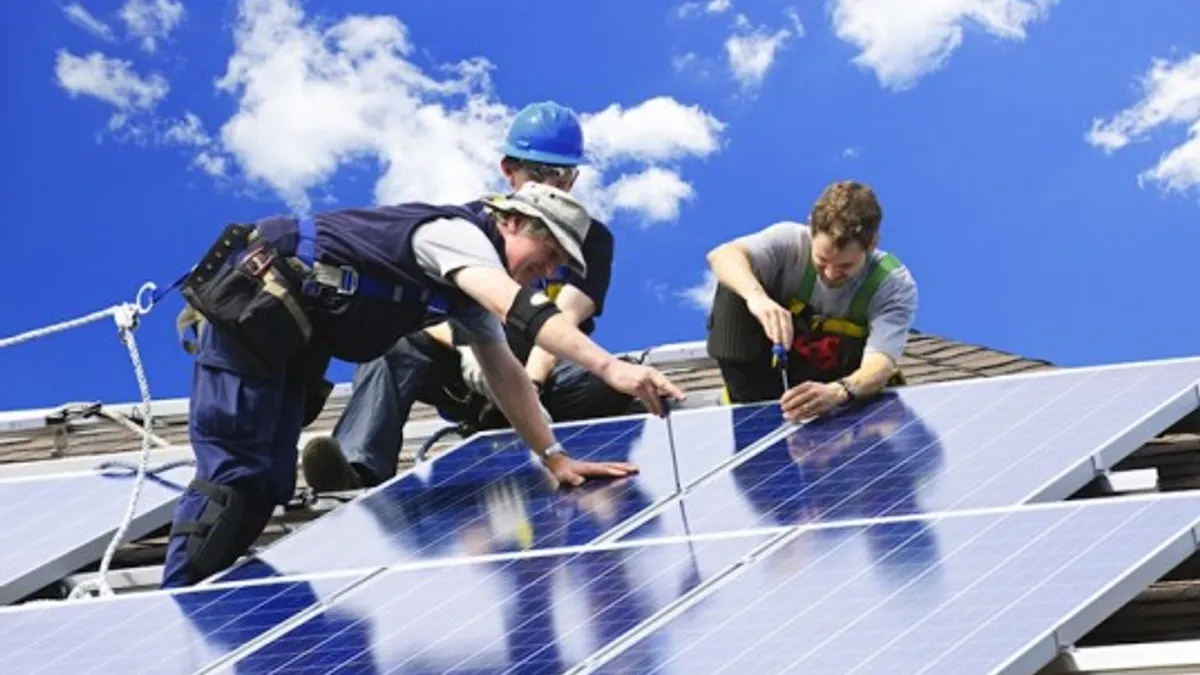Dive Brief:
- Nevada lawmakers are considering Assembly Bill 405, which would largely restore retail net metering rates for solar customers following the state's 2015 decision to roll them back, but utilities warn the move could be costly.
- In a presentation to the Senate, NV Energy said requiring the utility to purchase excess generation at close to retail rates would cost more than $63 million annually, or about $1.3 billion over two decades.
- The Nevada Assembly last month overwhelmingly voted to restore net metering rates; AB 405 is now in front of the Senate, which adjourns on Monday.
Dive Insight:
Nevada lawmakers are working to reinstate net metering rates, but NV Energy says it is not on board with the proposal. Forcing it to purchase solar customers' excess generation at above-market rates will cost all customers, the utility said in a presentation to the Senate.
The bill would force NV Energy to "purchase excess energy from private solar generation systems at legislatively mandated pricing not a price set by a market," the utility said. "Private generation customers would be placed in the same rate class as all other customers, yet would receive services other customers do not."
A 2015 decision by state regulators dramatically reduced compensation rates for excess energy from rooftop solar, sparking a national backlash. The decision prompted solar developers SolarCity and Sunrun to exit the state.
But Nevada lawmakers are considering legislation to raise export rates up to 95% of the retail rate for 6% of the system's peak load, with declining rates for systems after that. The Nevada Assembly last month voted 38-2 to approve the measure, and it is now in front of the Senate Committee on Commerce, Labor and Energy.
The measure appears likely to pass given the wide-spread support alongside other clean energy bills the state's legislature has approved this session. Other measures would establish an incentive program for energy storage within the state's solar program, and direct state regulators to consider requiring utilities to purchase energy storage in the next couple of years. Both of those measures have already been approved by both chambers and are now on Gov. Brian Sandoval's desk.















